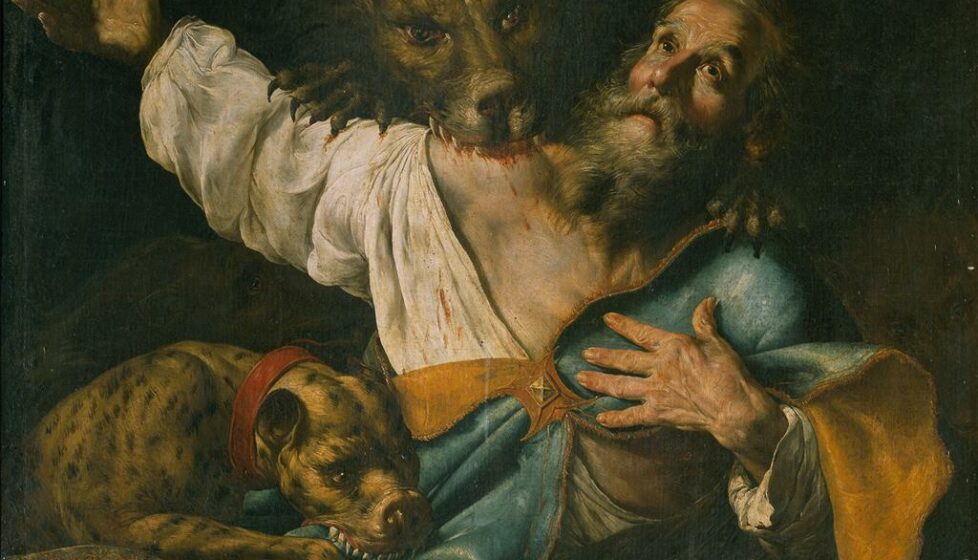Stories of Christian Martyrs: Jim Elliot, Pete Fleming, Ed McCully, Nate Saint, Roger Youderian

A news flash alerted the world: “Five Men Missing in Auca Territory.” The date was Monday, January 9, 1956. A team of missionary pioneers trying to make peaceful contact with an infamous tribe of Indians in Ecuador, the Waodani, had failed to make a scheduled radio call. For almost a full day no word had come from their camp on the Curaray River, which they named “Palm Beach.” Then a hovering pilot reported the badly damaged plane at the camp. This was followed by a gruesome confirmation on Wednesday, January 11, when the first body was spotted in the river. Though a search and rescue team was quickly formed, the discovery of more bodies quickly changed the mission from rescue to retrieval and burial.
By Friday of that week the team reached the missionaries’ campsite
and hurriedly buried four of the bodies. The men had died violently from
repeated spear wounds and machete cuts. The fifth body (Ed McCully)
was never located after being identified on the beach but then washed
away by the river. Five widows and eight orphans mourned the deaths
and looked to God for comfort and direction. The world witnessed in
stunned amazement.
Shockwaves from the tragedy traveled around the globe. Eventually,
thousands of Christians identified the news of the deaths of five young
men as the turning point in their lives. In her book, Through Gates of
Splendor, written a year after the deaths, Jim Elliot’s widow, Elisabeth,
described some of the remarkable early results from what seemed like a
tragic waste of life. The places of service vacated by those men were filled
many times over by young men and women moved and motivated by
their selfless sacrifice. Fifty years later, the effects continue to be felt.
Within two years of their deaths, Elisabeth Elliot and Nate Saint’s
sister made a friendly and lasting contact with the Waodanis. Bible
translation into the Waodani language began. One by one, the men who
committed the murder became believers in the One who sent the missionaries to reach them. Steve Saint spent much of his childhood among the Waodanis. Despite the fact that they had killed his father, Steve
became an adopted son of the tribe and eventually took his own family
to live for a time among them. The painful arrival of the Gospel among
that violent people worked a miracle of transformation.
While martyrdom has always been part of the great battle between
good and evil in the spiritual realms, the death of believers has not
always resulted directly from those seeking to silence their witness.
Violence has often been an expression of fear, suspicion, ignorance or
timing rather than a conscious rejection of the message. The five men
who died in Ecuador had spent months contacting the Waodanis
through over-flights and gifts exchanged via an ingenious bucket drop
devised by the team’s pilot, Nate Saint. Though the tribe had a history
of violent encounters with outsiders, the men had decided they had
established some degree of mutual trust that would support a direct
contact. At first, their cautious optimism had been rewarded by a visit
from three Waodanis. That had occurred without incident. They had
expected further contact. Little did the missionaries know that they had
stepped into an intra-tribe squabble.
When the attack party killed the five men, their actions weren’t
personal or even driven by what or who the white men represented. The
violence was almost a diversion from internal issues the Waodanis
couldn’t handle. Two of the three who had visited the camp at Palm
Beach reported that the missionaries had mistreated them; the third
person argued otherwise. Though others in the group recognized the
false accusations, it seemed easier to eliminate the cause (the missionaries)
than to address the internal issues. Once the possibility of killing was
raised, the general tone in the tribal group shifted to well-established
patterns of preparation for battle. They knew the white men had guns; they didn’t know they wouldn’t use them. Several of the Waodanis
reported hearing strange supernatural voices and seeing moving lights
in the sky during the attack, as if God sent an angelic choir to celebrate
the faithfulness and the homecoming of His loyal servants.
Steeped in generations of horrific hand-to-hand combat, combined
with the heightened memory that tends to characterize verbal cultures,
the Waodani display an amazing capacity for remembering the details
of battles. Lengthy conversations among the Waodani often consist of
show-and-tell descriptions of spear and machete scars and gruesome
minutiae of the deaths of enemies. But it wasn’t until years later that Steve
Saint heard the full story of the raid. Reminiscing by a fire late at night,
the aging warriors gave an account of the event, still amazed that the
white men had done nothing to defend themselves. Steve learned that
Mincaye, who had since become a father to him, had actually been the
one who had dealt the deathblow to his father. As soon as he knew, Saint
realized it didn’t really matter. What mattered was that God had used
an amazing mixture of spiritual weapons, including the deaths of five
servants, to defeat the power of fear and violence that had kept the Waodani captive as far back as they could remember.
In his book End of the Spear, Saint reports that he has been
frequently asked over the years about the struggle he must have experienced to forgive those who had taken his father from him. He has always responded that it was never a struggle for him. Even to his grieving five-year-old mind, the death of his father and friends had been a part of
God’s plan. You don’t have to forgive someone whom you have never
held responsible for an act.
True to the Maker and Mover behind the scenes, the story of the
Waodani displays God’s ways. Those who were once the impossible-to-reach are now taking their place among those who reach out. Believers
among the Waodani have suffered for Christ and at least one has experienced martyrdom. Their long history with violence makes them keen observers of the state of the “modern” world, where the increasing fascination and practice of hatred, violence, and killing appear all too familiar for those recently freed from that life of despair. God’s deeper
purposes take time to come to light. Occasionally, those who are paying
attention get to see those purposes shine and are amazed.
“Before being shot by you, we wish
to thank you heartily for what you
have meant to us. You baptized us;
you taught us the way of eternal life,
you gave us Holy Communion with
the same hand in which you now have
a gun… God bless you, and remember
that our last thought of you was
not one of indignation against
your failure. Everyone passes
through hours of darkness.
We die with gratitude.”
—Two Christian girls, Chiu-Chin-Hsiu and
Ho-Hsiu-Tzu, who were killed by their pastor, whom
the guards had promised to release if he shot them

